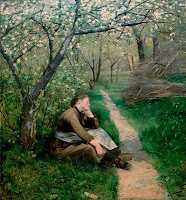“Stay in Your Lane.” I’ve been saying that to myself a lot recently. It’s a great mantra and a reminder, and it comes with an easy visual.
We know, as drivers, that it’s dangerous to weave back and forth lane to lane, and even more dangerous to drift into an oncoming lane. It’s also true—though maybe not quite as life-threatening, that it’s dangerous to drift into someone else’s lane—at work, at home, in friendships and in romantic relationships.
Staying in your own lane is a combination of boundaries and discernment: What is my business? What is not my business? It’s not always clear. But—continuing the metaphor—that’s what the broken line on the highway is for.
A couple things can help us stay in our lane. One is watching for the red flags.
One tool is listening carefully to what you are saying, especially how you preface any comments.
If you hear yourself saying, “It may not be my business, but…” You are correct. Stop right there and get back in your lane. Ditto, for “I’ve never been (a parent, married, seriously ill, faced with infidelity, a boss, laid off…etc.) but I know that I would….(Insert unsubstantiated advice here.)” No, you wouldn’t. And, you have no idea so cruise back to your own lane.
Anytime we say things like, “If my husband ever..” or “If my kid ever…” we’re blowing hot air. We might fantasize about what we’d do, but in reality there are so many ways to live thru hard things that none of us actually knows what we’d do. Turn that wheel.
Another red flag to tell you that you are drifting is to pay attention to your body. Is your heart racing, breathing accelerating, temperature rising, voice raising? You have left your lane and what you say next is 99% most likely to be a mistake or an over-reaction. Gently bring your lips together and take a seat, get a glass of water. Wait a minute or 30.
We almost never regret what we did not say. If it turns out that you have had a related experience (You directly, not your sister-in-law) then maybe share that privately, one-on-one.
A good friend of mine likes to remind me: “Diane, if the other person did not specifically say, “Diane, I want your advice”, then you have not been asked for your advice so don’t offer any. At all.”
Most days, I count myself good if I feel myself drifting out of my lane and pull back just in time.




